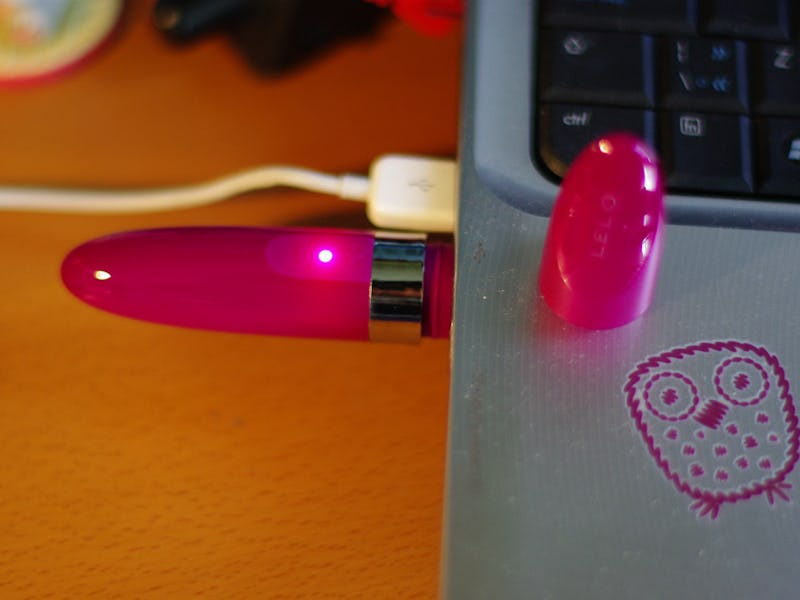In Lawsuits Against Digital Sex Toy Companies, the Teledildonics Patent War Gets Dirty
The virtual sex toy industry gets taken for a legal ride.

Teledildonics, as every 21st-century sex-haver should know, is the input/output of electronic sex toys via the Internet. It’s sort of like Skyping, but with your junk. The industry is small but far past its pubescence — it has been around since the ‘90s — but now what’s dropping is a hammer, wielded by a patent owner named Warren Sandvick. His partner, Tzu Technologies, has filed six lawsuits against companies that want to get you off, threatening single-handedly (heh) to set orgasms back 30 years.
In 2002, the United States Patent and Trademark Office approved Sandvick for a sweeping teledildonics process patent. The “Under Construction” website of his company, HasSex Inc., make its intentions implied if not clear: It’s in the patent-holding game.
Sandvick, of course, says the trollish implications are absurd. “I waited nearly 17 years to create an invention based on my patent,” he wrote in an email to Inverse. “The reason I never did before was I never thought the technology was in the right spot. So as I started looking more and more into bringing my concept to life. The problem is that I found a lot of companies already doing it.
“So I reached out to all these companies using my IP and they completely ignored me. At this point, I reached out to TZU to enforce the patent and partner with them on product development.”
Relatively large companies in the teledildonics field, like Kiiroo, have held the patent before. These companies are not that big, and Sandvick is making some odd choices on whom to sue. Of the companies against which complaints have been filed, only one, Vibease is currently offering products for sale, as Ars Technica points out. Sex toy website Metafetish notes it is especially weird to go after Internet Services, WMM Holdings, and Kickstarter, which aren’t in direct competition (Kickstarter), or out of the product-selling game.
After the patent was licensed this year from HasSex to TZU Technologies, the new holder is going after sex toy sellers, many of which Ars Technica notes are tiny or already closing down shop.
What gets U.S. patent 6,368,268 slapped with the trollish label is the broadness of its claims — patenting an amorphous process, rather than a specific Internet sex toy — that could suck in a variety of teledildonics companies:
… it is a primary object of the invention to provide a system that permits an operator to have interactive control of a sexual aid used to stimulate a recipient that is remotely located from the operator. It is a further object of the invention to provide a system in which an operator may stimulate a recipient over currently existing computer networks, such as the Internet. It is yet another object of the invention to provide a multi-media event, such as a prerecorded video feed, that automatically operates a stimulation aid located at a user interface.
In the complaint against the Kickstarter-backed hand-holding device Frebble, the attorneys for TZU claim, for example:
The Frebble Product Family comprises stimulation systems. Each of stimulation systems has a hand-operable input device for generating a command signal in response to an input from a first user. A first user interface is connected to the said input device, for generating a control signal based upon the command signal. A second user interface is remotely located from first user interface and a second user interface receives the control signal. A stimulation device receives a control signal from the second user interface. The stimulation signal imparts stimulation to a user in response to the control signal.
The Frebble Product Family of products infringe on one or more claims of the ‘268 patent.
Frebble wants to “cut through the distance and share that smallest gesture –- the squeeze of the hand –- that means so much,” which is charming but about as erotic as walking your grandma across an intersection.
The cases will go to court in the Central California district. The bad news for the small companies is that they’ll have to hire lawyers to fight the complaints. But because the patent is so ridiculously engorged — and wasn’t filed until 1998 — an inter partes review could deflate the patentability of the claims, potentially letting the little guys get off.